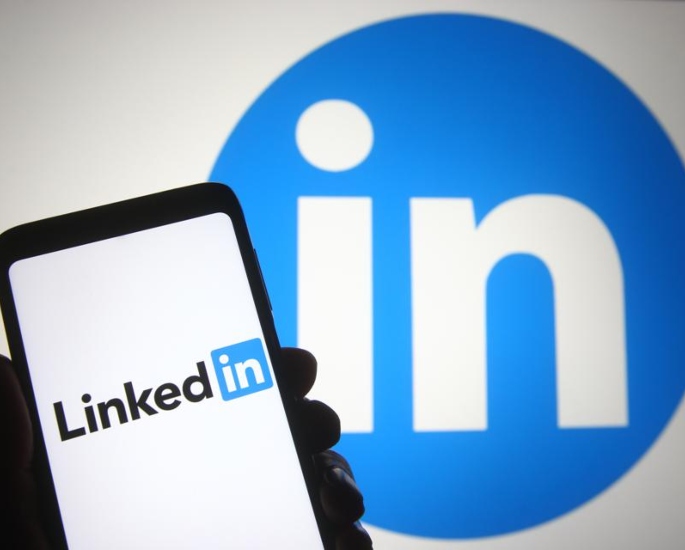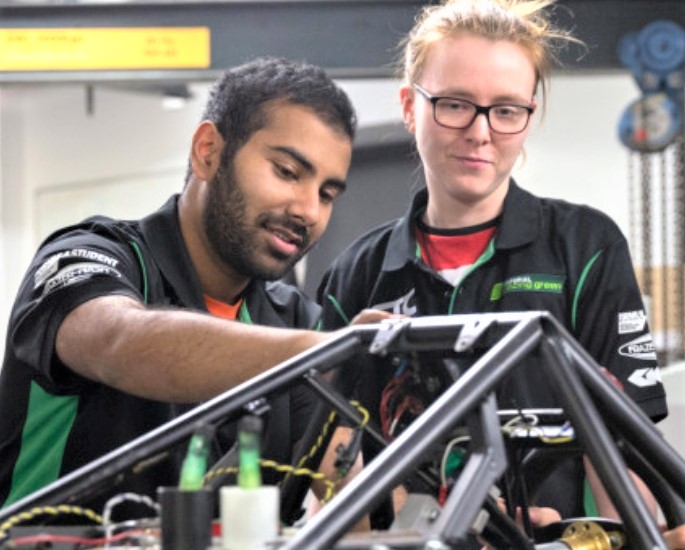"I’ve learnt much more doing that than my actual course"
Student life is full of freedom, hard work and opportunity. However, getting employed after university is one of the more difficult tasks as a student.
There are thousands of British Asians within top UK universities across the country.
Course numbers are even rising. The Guardian reported in January 2022 that “black and Asian students won places at prestigious UK universities at record levels in 2021”.
In comparison, Statista revealed that the unemployment rate for certain British Asians is quite high.
It showed that the unemployment amongst people of white ethnicity was only 3.8%.
Whereas for Indians it was 4.9%, for Pakistanis it was 6.7% and for Bangladeshis was 12.3% – the highest of all the ethnic groups.
So, is getting employed after university that difficult?
With the Covid-19 pandemic affecting certain sectors, the competitive nature of interviewees is definitely rising.
But, there are specific methods that British Asians can use that will help their employment status once they enter the real world.
Whether it’s a job in medicine, sales or modelling, here are 7 top ways to stand out amongst the competition.
As the most formidable professional platform available, LinkedIn is a highly resourceful tool to get employed after university.
The network boasts 810 million members in more than 200 countries.
However, with such a high profile, LinkedIn is still underutilised by many British Asian students.
That’s not to say they don’t sign up to the site, because they do. However, it’s the way you use LinkedIn that decides how effective it can be.
The most favourable element of the site that students should use is networking.
You’re able to connect with anyone and everyone. Industry elites, CEO’s, other graduates and much more.
Although you may not always get a response, it still opens the door to view what is going on within your chosen sector.
Almost like a ‘professional facebook’, there are limitless opportunities to get employed after university on LinkedIn.
In July 2021, Maddy Osman from blogging site Kinsta emphasised this:
“A study found that 122 million people received an interview through LinkedIn with 35.5 million having been hired by a person they connected with on the site.
“So it’s unsurprising that 3 people are hired through LinkedIn every minute.”
Once immersed within the platform, employers can see your profile which we recommend to kit out as much as possible.
A little trick is if you happen to see a job posting somewhere else, find the recruiting employee on LinkedIn and message them.
Not only will this make you stand out but it will add a personal touch to your career prospects.
Networking
Although LinkedIn provides its own networking opportunities, meeting professionals, in general, is quite overlooked.
The whole concept of networking is introducing yourself and building a rapoire with someone within your industry.
This can be done through numerous events. Universities are terrific at putting on social nights or occasions where lecturers, employers and other students attend.
For example, for those on English courses, find out when the next spoken word event is or author reading.
Here, you can meet published writers and pick their brains about how they landed their roles.
It’s also an incredible space to exchange contact information, and in most cases, these are personal emails, social media pages and/or phone numbers.
Although networking may not be comfortable for everyone, even a simple hello and introduction would suffice.
The main component here for British Asians is not to lose communication.
Therefore, once you have built that connection with someone, drop them a message that evening or the next morning.
This will make sure that they don’t forget you as undoubtedly, other students would have been talking to them as well.
So, carry on the conversation and make it personal. You can refer to a topic you were discussing at the networking event so you are easily distinguishable.
Simran Patel, a medical student at Aston University reinforced this:
“I went to a medical conference in my third year and met some experienced people who told me the best ways to get a job after I graduated.
“So, I exchanged emails with a couple of doctors who I messaged the next day and I actually got an interview that way.”
“I was quite surprised how easy it was.”
Be confident, personal and present yourself well and networking is one of the best tools to get employed after university.
Work Experience
Although getting employed after university is the main focus, building your CV up for that hurdle starts at university itself.
Whilst employers will look at your education and previous roles, having a list of voluntary or extra work experience is important.
The good thing about work experience is it is extremely available in a wide variety of sectors.
This is because industries aren’t losing anything in terms of salary but would love more staff.
Although some British Asian students are reluctant to get work experience for this exact reason, most roles will offer flexibility towards your schedule.
Therefore you’re able to focus on university work, achieve a weekend paid job and do the work experience within your free time.
This kind of technique will show employers that you’re proactive and responsible.
Additionally, some work experience jobs can offer paid roles if you go above and beyond with your duties.
If not, then at least the managers will give you a solid reference when you go on to apply to other companies.
The most important thing here is to envision the type of career you want post-university.
This will make your work experience search easier because you know exactly the type of companies to look for.
Reiss Panesar, a history student at the University of Liverpool highlighted:
“I do history but I love the history of art. So, I contacted some galleries and museums for experience, and they were more than happy to take me on.
“I don’t get paid but the knowledge the other historians pass on to me is more than enough, to be honest.”
Work experience gives you vital experience in your chosen sector.
It exposes you to the kind of assignments you would be tasked with in a paid role which is great when trying to get employed after university.
Free Courses
When trying to get employed after university, managers and recruiting agencies look at the type of skills you can offer them.
As you’re competing against other applicants, it’s important to try and set yourself apart.
This comes in the form of a condensed yet thorough CV, strong references and your educational and personal attributes.
Therefore, free courses are a terrific way to bolster up your profile against others.
There are numerous courses freely available online that cover a range of sectors and expertise.
For example, if you’re studying an artistic course like drama/acting, you may want to take a language course.
So, when theatres or producers see your attributes, they can see you’re able to play the part of a non-British person. Therefore, broadening your opportunities.
Likewise, if you study engineering, you can take up free IT courses to enhance your computing skills.
Not only would that contribute to your actual university work but would show employers that you’ve taken the necessary steps to improve.
There are an increasing number of websites and online tools that you can use to obtain these qualifications.
Sites like Reed and Khan Academy offer hundreds of free online courses, meaning you can do them in your own time without leaving the house.
Careers Fair
A Careers Fair is a well-known employment tool amongst students and is highly popular.
However, this type of event is not just available at universities, it is widely organised at different locations in the UK.
It is a great opportunity for British Asian students to meet experienced people in their desired roles.
On most occasions, companies have representatives that will let you know if you have the right experience and/or education to fit in with their needs.
But, take this with a pinch of salt.
Although that’s a good indication of areas you may need to improve on, their conclusions aren’t always factual.
Not only are these fairs an insightful look into the workplace, but you can question recruiters around the field.
This will allow you to gauge if that industry/role is a right fit before applying.
Likewise, you can sign up to numerous companies without having to commit completely as you would through an application.
Jasveer Kaur, a graduate in Leeds emphasised how important careers fair are:
“I went to a fair which was at Old Trafford and it was just like the ones you see at uni.
“It’s much bigger but there were loads of employers there who were eager for you to sign up with them.”
“That’s what’s kind of good about these things.
“You end up going wanting to sign up somewhere specifically and then get intrigued by a new industry. I’d definitely recommend.”
Companies like The UK Careers Fair host events in over 50 locations.
This is open to everyone and is an ideal method in trying to get employed after university.
Entry-Level Jobs
Entry-level jobs are a mix between work experience and a paid role.
Whilst companies are attracted to the type of education that graduates have, their lack of experience is what deters employers away.
However, entry-level jobs fill that void. They require little to no experience and are always looking for graduates to come aboard.
Helping you to build key skills and knowledge, it’s a gateway for many students who use it as a period to build up their CV.
This technique is increasing in many British Asian households.
It takes away that family pressure as you are still getting paid, but allows you to mould yourself in certain areas to move on to bigger things.
In some cases, these opportunities won’t even require you to have a degree. So, it is a perfect way for those who didn’t go to university or for those who are still studying.
It can act as a part-time job and once you graduate, recruitment agents will see you already have that important experience as well as the education.
Kiran Kaur*, a third-year student at Birmingham City University revealed:
“I got an entry-level job as an online marketing assistant. I’ve had it for a few months and love it.
“I only get paid the minimum wage and work there a few hours a week ‘cause of my dissertation.”
“But I’ve learnt much more doing that than my actual course which is crazy.
“They even said if I perform well, they’ll offer me a graduate role, so win-win.”
Although entry-level jobs depend on personal preference, it is still a prominent way in building your repertoire for the working world.
Social Media
Social media has quickly become one of the easiest and fastest ways to get employed after graduating.
Although it is catered more towards creative careers like singing, modelling or acting, social media serves a great purpose.
Twitter is one of the most predominant ways to search for recruiting officers or company managers.
You can drop them a direct message to ask questions or to try and connect on a more social platform like LinkedIn.
However, the social site has a useful search bar where you can use specific hashtags like ‘#nowhiring’ or ‘#graduatejobs’.
The good thing about this is that it will bring new tweets which means those vacancies are fresh and allows you to be one of the first applicants.
Likewise, Instagram is another useful social media app to facilitate your job search. Follow companies within your field to stay up to date with their vacancies.
For example, if you studied music and want to find an entry point into the industry, direct message upcoming artists or DJs.
In most cases, they’ll exchange information with you and if you present yourself well, you can attend a show to network even more.
Jason Singh*, a graduate from Royal Academy of Music expressed that’s the way he found his big break:
“Music was amazing to study and I learnt how to produce and play different instruments.
“As an Indian, it’s hard to get into music period.
So I dm’d so many artists on Insta and they were all so welcoming and invited me to some shows.”
“I went to them and just spoke freely about who I was and what I wanted to do. Then next thing you know, we’re in the studio cooking up beats.”
This shows that social media is an avid tool in getting employed after university.
It is limitless and can be applied to many industries, whether it’s law or art.
These top seven ways of getting employed after university are incredible in improving your job search.
British Asians can use these methods in order to attract employers, network with industry elites and also build up their own skills.
As difficult as it is to get a job as a graduate, there are still important steps you can take in order to stand out from the crowd.
Whether that’s free courses or work experience, your job search is only as successful as you want to make it.
Therefore, utilise all the platforms out there and it will build up your confidence, skills and career prospects.




































































